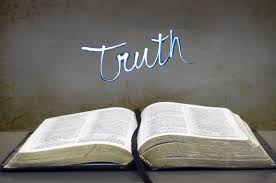THE BIBLE
- Bible
All Christians believe that divinely inspired men wrote the Bible. The Bible is God’s revelation of Himself to man. It has God for its creator, without any error, and should be man’s primary source of instructions for living a Christian life. God’s revelation in the Bible has one main message, the story of His love for mankind. We hold that all Scripture is accurate and trustworthy. In Scripture, we find a testimony to Christ, who Himself is the focus of divine revelation.
Exodus 24:4; Deuteronomy 4:1-2; 17:19; Psalms 19:7-10; Isaiah 34:16; 40:8; Jeremiah 15:16; Matthew 5:17-18; 22:29; John 5:39; 16:13-15; 17:17; Acts 2:16ff.; 17:11; Romans 15:4; 1 Corinthians 13:10; 16:25-26; Hebrews 1:1-2; 4:12; 1 Peter 1:25
______________________________________________________________________
The Bible contains the writings from which we derive the basis of our belief in God and His Son Jesus. For Christians, the Bible is the only real source we can rely upon when forming a tenet.
Now that may seem simple. The scriptures are the essential writings for us followers of Jesus, and they must come from one source, the Bible. However, when it comes to our belief that the Bible is our sole source, the issue can get complicated if we ask different people. If we were to ask others about their faith in the Bible as God’s only source of Scripture, we might get answers, something like, ‘well, I think that there are 66 books that make up the Bible’. Should we ask a Catholic priest, he would tell us there are 73 books in the Bible.
For us, we believe that there are 66 books of the Bible. Most of the people who would consider themselves Christians believe that the Bible contains 66 books.
Some may ask what makes these books or writings so unique? What do they represent? The short answer is, they represent the things that God has inspired men to write and proclaim to His creation.
A better and more complete answer deals with the New Testament and the Old Testament separately. The New Testament consists of writings that are linked to the eyewitnesses of Jesus and contain information about His teaching, His life, as well as how that information worked out in the lives of those that follow Jesus. Or in short, it reveals the person of Jesus, what He did, and what that means in our life.
The books of the Old Testament contain the writings of God speaking to the people of Israel, His chosen people of God. For us, it should be taught along with the New Testament, so that we may read and understand God’s plan for His people. The prophecies and writings found in the Old Testament give us a clear picture of the coming of Christ and God’s plan of salvation. Also, these writings have the information that God has chosen to reveal about himself.
What makes the Bible trustworthy and authoritative?
Again, the short answer is that God said it.
A fuller and more complete answer to the question is that God has made us in His image. It now becomes our responsibility to live up to that image. Simply put, we are to live in a way that reflects his character. We see this throughout Scripture.
In His Sermon on the Mount (Matthew 5:48), Jesus tells us that we are to be ‘perfect as your Heavenly Father is perfect.’ We are to strive to be as God is. God is love. We are to love. God is the truth. We are to ‘walk in the truth.’ We need to live our lives with the character that will reflect God’s character. The Old Testament law does not entirely go away. However, the nature of the way it relates to us is different. It tells of how God expected His character to be evident in a community of His people in ancient times.
There are many differences in culture, language, and history, which means that we live out God’s character in a different way today. However, that does not imply that the ancient laws of the Bible do not reveal God’s character.
The Scriptures record God’s way of revealing His character. And it remains God’s plan of ruling our lives.
If we start with the concept of God’s law, we see that this is God’s plan for governing our lives. He chose to start revealing himself through a story and then a law. He related to Abraham and showed he was faithful. He did not set up Abraham as a king to rule. He referred to his life and recorded it as a story. He then revealed himself to Moses and gave him the law. He did not set up Moses as a king. He gave him laws and ways through which His people were to be ruled by God. It was not up to Moses to enforce the laws; it was up to the community’s people. It was only much later when people had shown they did not want to be directly ruled by God that God first set up Saul and then David as a king. God’s chosen way to rule his people is through His scriptures found only in the Bible.
However, for us, as the body of Christ, it is helpful to put this in a historical context and see how this is part of the characteristics that make up His Church. Historically, for us as Christians, what the authority of Scripture means is that the Scripture is the authority, not a manmade group. It did not take long from the start of the church to have some people start to assert their authority over others in the church. Therefore, the church went the way of Israel.
In some ways, this was necessary. After Christ’s death, the apostles needed to teach about Jesus. They needed to say what was real and not right with things that relate to our relationship with God and our relationship to one another as the body of Christ. We see this explained in detail throughout the various letters of the New Testament. These letters were then entrusted to every generation of those responsible for teaching and leading others in the knowledge of Jesus Christ.
But, as anyone who has ever witnessed something and then tried to convey it to someone else, after a while, the things that are not written down tend to change. They might be changed a bit, or something added, or something lost. Fortunately for us, in God’s foresight, he prompted people, the apostles and some people associated with them, to write down the teachings about Jesus, who lived what He taught.
So, as Bible-believing Christians, we do not follow the teachings or laws that come from the Catholic Church, or any other church or denomination. In the past, some churches focused on gaining power by building relationships with kings, seeking to influence the making of laws, and many times compromising truth in order to maintain power. That sort of power is rejected by Christians and this Association as well.
However, we should not confuse the authority of Scripture with the power that people within the church have been given. As ministers of the Gospel, specific authorization has been delegated to us. We are to lead and teach people. However, the way we do these things is to be under God’s sole authority, and the administration found in His Scriptures. We are to know and expect that anyone can challenge what we teach if it contradicts Scripture.
Therefore, we should not be influenced by what other churches do when they get together and decide on Polity or doctrine. It is about what the Scriptures say, not what a church, or what any teacher might say. If a group of churches got together and said that Jesus did not die, or that Mary was not a virgin, or whatever they might say, it isn’t binding on us. We understand that it is the Bible, not what somebody says about the Bible, that is important for us.
Lastly, it needs to be mentioned that tradition does not hold authority over the Bible. If we continue to do something repeatedly, people tend to start believing it to be true. One of the things the reformers did was to question why the church did what it did. Doing something because that was the way we’ve always done it was not the right action if it did not hold up to the teaching of Scripture.
So, for us today, it is not in the way we have done things in the past, or what people used to say in the past. It is the way we understand the Bible speaking to us today. Likewise, what we do in our church services does not have to be dictated by tradition but by the Scriptures. However, it does not mean that we are to discard all traditions, but ultimately all authority lies in the Scriptures, not tradition.
Also, we can see this in the way Christians teach. We start by explaining what the Bible says. To others, traditions, and other sources (books, people, popular teachings) hold significant importance. They might start teaching on a topic by saying what a person or writing said and then going back a hundred years because, for them, the church’s tradition does have authority. We, as bible-believing Christians, do not hold tradition as authoritative. We can easily see that anyone who teaches must first have knowledge of the Bible and God’s Scriptures and believe that the Bible, not man or his teachings, has final authority.



